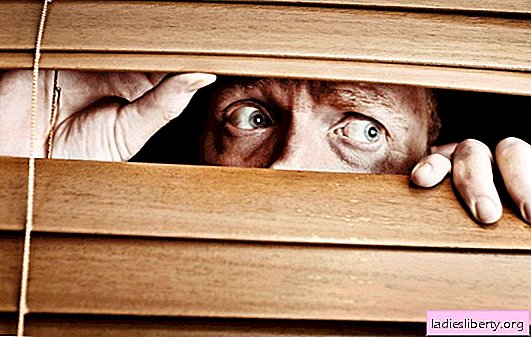
Anxiety is an emotion that is characterized by unpleasant mental arousal in situations that threaten a person. Pathologically exaggerated anxiety is called "anxiety personality disorder." Some people are more prone to anxiety than others, so they often need treatment.
The main types of people at risk
Spanish studies show that people with certain personality traits are more prone to anxiety disorders. Responsible people avoid problems and achieve great success through planning and perseverance. They are also positively viewed by other people. The main disadvantages of responsible people are excessive workaholism, perfectionism and pathological anxiety.
Children who suffer from excessive perfectionism have little self-esteem. Sometimes anxiety disorders develop in early childhood - up to 5-6 years.
According to Hans Eysenck, neurotic personalities are at the highest risk of developing anxiety, anxiety and bad mood. Neurotics are biased towards negative situations that cause them to continue to experience bad emotions.
They are characterized by a lack of uniformity of behavior, low tolerance to stress, poor sociability and distrust. Sometimes neuroticism is called "emotional instability."
Shy people are the most vulnerable type of people who most often suffer from anxiety disorders. The level of anxiety is kept in the normal range while they are at home.
In crowded places or in a circle of friends, they are very anxious, so they often commit unjustified acts.
Each person is individual, and only a combination of many factors contributes to the development of anxiety disorder. Therefore, it is often difficult to determine the cause of the anxiety disorder. Although sometimes unpleasant situations can be avoided, this behavior should never determine a person’s life.
If this "avoidant behavior" restricts everyday life, you need to urgently seek help. Anxiety disorders are very treatable. The sooner this help is used, the faster you can get rid of them.
A recent study found that very shy people are more likely to experience anxiety during a hangover.
The results also suggest that alcoholism may be the cause of anxiety in these people.
New facts: shy people are more likely to suffer from impulsive alcoholism
Impulsive alcoholism is a chronic condition characterized by a person’s inability to stop or control alcohol consumption.
The patient consumes ethanol despite adverse social, occupational or medical consequences.
Impulsive alcoholism is reported to affect about 12 million adults in Russia and over 230,000 adolescents aged 12 to 17 years. Symptoms may be mild or severe.
There are several factors that increase the risk of impulsive alcohol use: social pressure and stress.
New research suggests that experiencing anxiety during a hangover may also indicate that a person is more likely to develop anxiety disorder.
Is “shyness" a risk of impulsive alcoholism and anxiety?
Scientists measured the level of anxiety in shy participants after they asked volunteers to either drink normally or stay sober. The study found that people who were "very shy" experienced a significant increase in anxiety the day after drinking.
Researchers found a significant association between high levels of anxiety the next day and symptoms of impulsive alcoholism in shy people.
The study suggests that drinking alcohol by people who suffer from shyness can exacerbate anxiety.
Many people drink alcohol to ease anxiety in social situations. However, the study suggests that the next day this may have additional consequences.
Pathological anxiety can destroy both social and professional life. Therefore, it is always necessary to seek the advice of a psychologist if there are signs of excessive anxiety.











